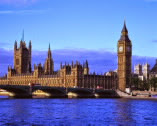Is college worth the effort?Here's one approach
SLATE: TUESDAY, NOV 25, 2014 03:45 AM PST
SLATE: TUESDAY, NOV 25, 2014 03:45 AM PST
Robert Reich: College gets you nowhere
[The former secretary of labor examines why a degree no longer guarantees a well-playing job]
This is the time of year when high school seniors apply to college, and when I get lots of mail about whether college is worth the cost.
The answer is unequivocally yes, but with one big qualification. I’ll come to the qualification in a moment but first the financial case for why it’s worth going to college.
Put simply, people with college degrees continue to earn far more than people without them. And that college “premium” keeps rising.
Last year, Americans with four-year college degrees earned on average 98 percent more per hour than people without college degrees.
In the early 1980s, graduates earned 64 percent more.
So even though college costs are rising, the financial return to a college degree compared to not having one is rising even faster.
But here’s the qualification, and it’s a big one.
Robert Reich, one of the nation’s leading experts on work and the economy, is Chancellor’s Professor of Public Policy at the Goldman School of Public Policy at the University of California at Berkeley. He has served in three national administrations, most recently as secretary of labor under President Bill Clinton. Time Magazine has named him one of the ten most effective cabinet secretaries of the last century. He has written 13 books, including his latest best-seller, “Aftershock: The Next Economy and America’s Future;” “The Work of Nations,” which has been translated into 22 languages; and his newest, an e-book, “Beyond Outrage.” His syndicated columns, television appearances, and public radio commentaries reach millions of people each week. He is also a founding editor of the American Prospect magazine, and Chairman of the citizen’s group Common Cause. His new movie "Inequality for All" is in Theaters. His widely-read blog can be found at www.robertreich.org.




